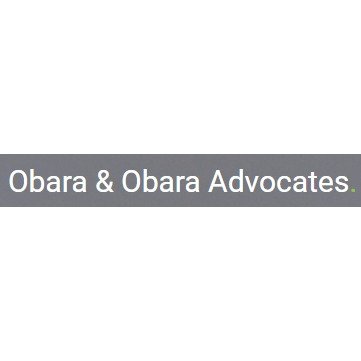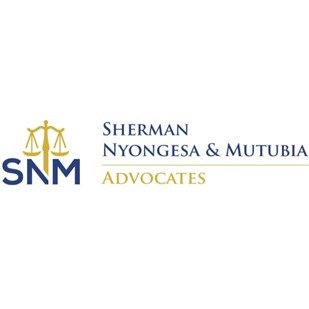Best Sexual Harassment Lawyers in Kenya
Share your needs with us, get contacted by law firms.
Free. Takes 2 min.
Or refine your search by selecting a city:
List of the best lawyers in Kenya
About Sexual Harassment Law in Kenya
Sexual harassment in Kenya is recognized as a pervasive issue affecting individuals in various environments, including workplaces, educational institutions, and public spaces. The Kenyan government has enacted laws to address and prevent instances of sexual harassment, focusing primarily on safeguarding the rights and dignity of victims. The Sexual Offences Act of 2006 is a key piece of legislation that defines and penalizes acts of sexual harassment, reflecting the country's commitment to tackling this issue.
Why You May Need a Lawyer
Seeking legal help for sexual harassment is crucial in situations where an individual experiences unwanted sexual advances, inappropriate touching, or suggestive remarks, especially in settings such as the workplace or schools. A lawyer can help victims navigate the legal process, protect their rights, and pursue justice through appropriate legal channels. Cases of power imbalance, job-related threats, or institutional failures to address complaints necessitate professional legal assistance for effective resolution.
Local Laws Overview
Kenya's laws provide a framework for addressing sexual harassment effectively. The Sexual Offences Act, the Employment Act, and the Constitution of Kenya are the primary legal instruments that govern the issue. The following are key aspects relevant to Sexual Harassment in Kenya:
- The Sexual Offences Act: This Act outlines various sexual offenses, including harassment, and prescribes penalties for offenders.
- The Employment Act: Employers are required to have policies in place to prevent sexual harassment, and victims are entitled to file complaints against offenders.
- The Constitution of Kenya: Safeguards the rights to equality and freedom from discrimination, which encompass protection against sexual harassment.
Frequently Asked Questions
What constitutes sexual harassment in Kenya?
Sexual harassment includes unwelcome sexual advances, requests for sexual favors, or other verbal or physical conduct of a sexual nature that affects an individual's work, education, or living environment.
Where can sexual harassment occur?
Sexual harassment can take place in various settings, including but not limited to workplaces, educational institutions, public spaces, and online environments.
What should I do if I experience sexual harassment at work?
If you experience sexual harassment at work, report the incident to your employer or human resources department as they are legally obligated to investigate such complaints. You may also consider consulting a lawyer for further guidance.
How can I file a complaint about sexual harassment?
You can file a complaint with your organization's internal mechanisms, the Directorate of Criminal Investigations, or the Kenyan Human Rights Commission for further action.
Can I pursue criminal charges against the harasser?
Yes, if the conduct meets the threshold of criminal behavior as defined in the Sexual Offences Act, you can pursue criminal charges through legal means.
What evidence is needed to prove sexual harassment?
Evidence can include emails, text messages, witness statements, audio/video recordings, or any documentation that supports your claim of harassment.
What are the penalties for sexual harassment in Kenya?
Penalties for sexual harassment offenses vary, including fines, imprisonment, or both, depending on the severity of the offense and the ruling by the court.
Are there any time limits to report sexual harassment cases?
While there is no strict time limit for reporting, it is advisable to report incidents as soon as possible to preserve evidence and facilitate a timely investigation.
Can I remain anonymous when reporting sexual harassment?
Some mechanisms may allow anonymous reporting; however, it may limit the effectiveness of investigations and potential legal proceedings.
What support is available for sexual harassment victims?
Support for victims is available through counseling services, legal aid, and support organizations dedicated to addressing sexual harassment and supporting survivors.
Additional Resources
For additional assistance, victims can reach out to several organizations and governmental bodies including:
- The Federation of Women Lawyers (FIDA) Kenya
- The Kenya National Human Rights Commission (KNHRC)
- The Directorate of Criminal Investigations (DCI)
- Legal Aid organizations across Kenya
Next Steps
If you require legal assistance for sexual harassment issues, consider the following steps:
- Gather all relevant evidence, documentation, and any witness statements.
- Contact a reputable lawyer specializing in sexual harassment cases.
- Report the incident to your local law enforcement agency for official documentation.
- Engage with support organizations for counseling and additional resources.
- Follow your lawyer's advice and engage with legal proceedings as necessary to seek justice.
Lawzana helps you find the best lawyers and law firms in Kenya through a curated and pre-screened list of qualified legal professionals. Our platform offers rankings and detailed profiles of attorneys and law firms, allowing you to compare based on practice areas, including Sexual Harassment, experience, and client feedback.
Each profile includes a description of the firm's areas of practice, client reviews, team members and partners, year of establishment, spoken languages, office locations, contact information, social media presence, and any published articles or resources. Most firms on our platform speak English and are experienced in both local and international legal matters.
Get a quote from top-rated law firms in Kenya — quickly, securely, and without unnecessary hassle.
Disclaimer:
The information provided on this page is for general informational purposes only and does not constitute legal advice. While we strive to ensure the accuracy and relevance of the content, legal information may change over time, and interpretations of the law can vary. You should always consult with a qualified legal professional for advice specific to your situation.
We disclaim all liability for actions taken or not taken based on the content of this page. If you believe any information is incorrect or outdated, please contact us, and we will review and update it where appropriate.
Browse sexual harassment law firms by city in Kenya
Refine your search by selecting a city.

















